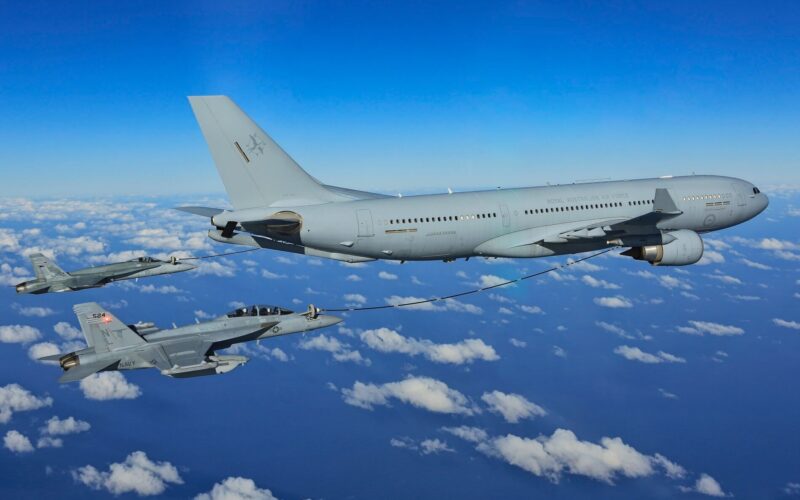The United States Air Force is ready to move forward with the second program aimed at renewing its fleet of aerial refuelers. Formerly known under the codename KC-Y, the competition should once again see Boeing face Airbus in partnership with Lockheed Martin. The many difficulties encountered by Boeing’s KC-46A Pegasus, birthed from the previous program, could be a thorn in the Seattle manufacturer’s side.
The USAF is struggling with its aerial refueling capacities, both for its own needs and those of its allies. Consequently, the Pentagon is reviewing the involvement of the U.S. military abroad and could disengage from certain deployments, such as the refueling and transport support it provides to France, which is currently engaged in Operation Barkhane against Islamist insurgents in Mali. Private contractors, such as Washington D.C.-based Meta Aerospace, should address the capacity gap pending more definitive solutions for the USAF Air Mobility Command.
As explained by Gen. Jacqueline D. Van Ovost, Commander of the Air Mobility Command, during the Airlift/Tanker Association’s virtual conference, the aircraft selected in this second competition, set to replace the KC-135R fleet, would be a “bridge tanker” between the first batch of 179 Boeing KC-46A tankers, ordered following the KC-X tender, and a third program known as KC-Z. The latter will see manufacturers compete with a completely new and innovative design, whose requirements remain to be revealed.
Redeeming opportunity for Boeing?
It was Airbus (partnered with Northrop Grumman at the time) that initially won the KC-X tender launched by the Pentagon for a new refueling system to equip the United States Air Force. With its A330 MRTT already in production, the European manufacturer was way ahead of its American rival whose KC-46 Pegasus was still on the drawing board. However, political concerns invited themselves into the acquisition process, and after several years of lobbying, the contract was eventually taken away from Airbus and given to Boeing. 179 aircraft were ordered by the USAF.
The KC-46 Pegasus was supposed to reinforce the thin-stretched refueling capacities while replacing the KC-10 Extender, with the entire fleet due to be withdrawn by 2025. But the development of the tanker exceeded the initial forecast by $3 billion (which hints at a deliberate underestimation to win the contract over Airbus). To add to that, the aircraft has encountered numerous technical problems since its delivery, including three “critical deficiencies” that could take years to fix.
Stepping stone for Airbus?
Boeing’s struggle comes as a perfect opportunity for Airbus to come back into the game. In December 2018, Lockheed Martin and Airbus signed a memorandum of agreement to jointly explore opportunities to meet the growing demand for aerial refueling for U.S. defense customers. Contacted by AeroTime News, both manufacturers said the prospect was still being studied. “We continue to work together to define a path to support the U.S. Air Force and their tanker mission and look forward to reviewing an RFP when released,” they said.
Airbus will compete with its battle-proven A330 MRTT, in a version adapted to the needs of the USAF that would use Lockheed Martin’s competence in the matter. Nine countries are currently operating the A330 MRTT. Globally, 61 A330 MRTT tankers were ordered, out of which 45 are already operational.
Meanwhile, the Boeing KC-46 Pegasus has been ordered by three air forces so far: the United States Air Force, the Japanese Air Self-Defense Force, and the Israeli Air Force.

